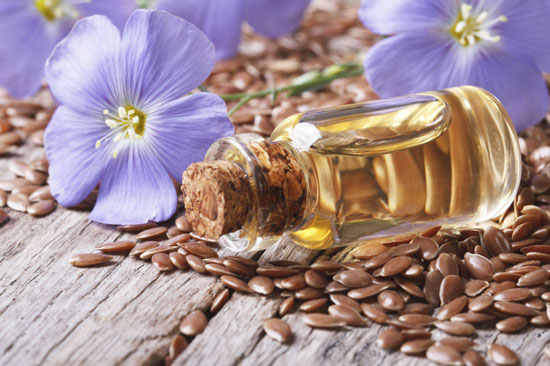9 natural remedies for headaches for quick relief (2)
Read the first part of the article
Supplements for headaches
It’s a good idea to get your nutrients from food. But sometimes, you may lack certain vitamins and minerals because of your diet, and in those cases, you can take nutritional supplements to fill the gaps. These supplements may help with your headaches.

Omega-3 fatty acids
Omega-3 fatty acids can reduce the frequency and severity of headaches, as well as promote an overall balanced mood. Instead of fish, try looking to flax seed, algae oil, and other plant-based sources of omega-3s.
Vitamin B-12
Some studies have found elevated levels of homocysteine, an amino acid produced by the body, in people who get migraines. Some studies have found that supplementing with vitamin B-12 may normalize homocysteine levels in the body, and as a result, may help with headaches, though the studies are inconclusive. Foods high in vitamin B-12 include primarily animal sources, so if you eat a plant-based diet, you may need to take a B-12 supplement.
Magnesium
Insufficient magnesium causes blood vessels to constrict, and when that happens in the brain, it can lead to head pain. Studies have found that taking a magnesium supplement can influence blood flow, easing headache tension. Many people do not get enough magnesium in their diet and adding a supplement to your daily regimen may help.
Riboflavin
Also called vitamin B-2, riboflavin in high doses may reduce headache frequency. Scientists had people take 400 milligrams every day for six months and observed that cut the number of headaches people experienced in half, from four to two per month average. Taking this vitamin also reduced the amount of migraine medication the patients needed to take.
Coenzyme Q-10
Our bodies naturally produce an antioxidant known as CoQ10 or coenzyme Q, but taking more can serve as a natural remedy for a headache. In the body, CoQ10 provides energy to cells, but some people with various health ailments may be deficient in this substance. It may help with headaches by normalizing blood pressure.
Feverfew
This herbal supplement may help prevent migraines, but the evidence is inconclusive. The most recent rigorous trial found that taking feverfew caused, on average, 0.6 fewer migraines a month. The study found no major safety concerns with taking feverfew supplements.
Butterbur
Butterbur, a flower in the sunflower family, may help prevent headaches according to the American Academy of Neurology and the American Headache Society. However, unprocessed butterbur plant contains toxic chemicals called pyrrolizidine alkaloids (PAs), so only use supplements labeled and certified as PA-free.
What causes headaches?
Now that you know natural ways to eliminate headaches, you may also want to know what causes them so you can avoid potential triggers. Common causes of headaches include:
• Skipped meals
• Stress
• Inadequate or uncomfortable sleep
• Neck muscle pain
• Bright lights
• Cigarette smoke or alcohol
• Strong odors, like perfume
• Certain foods
• A medical condition
Foods that cause headaches

Some people experience headaches after eating certain foods. Common food triggers include:
• Aspartame
• Caffeine (or caffeine withdrawal)
• MSG (monosodium glutamate)
• Nitrates and nitrites
• Aged cheese
• Chocolate
• Fermented, pickled, or marinated foods
• Alcohol, particularly red wine
• Gluten
If you suspect something that you eat may be causing your headaches, keep a food journal to help identify food triggers so you can eliminate them from your diet.
An irregular eating schedule can also lead to headaches, whether you miss a meal because you are too busy to eat or because you are fasting. When you are fasting or cleansing, headaches typically go away once caffeine and other toxins are fully eliminated from your bloodstream and your body adjusts.
Genes and headaches
It’s not uncommon for migraines to run in families and research suggests that migraines, in particular, have a genetic basis. A 2013 study published in the journal Nature Genetics looked at more than 100,000 people and identified 12 genetic regions, including five new ones, associated with people’s susceptibility to migraines.
Stress and headaches
Headaches are more likely to occur when you feel stressed. Stress can cause both tension headaches and migraines, and it can worsen headaches caused by other issues. Find ways to reduce and handle stress, such as taking breaks throughout the day, exercising, and meditating.
Sleep and headaches
Too little and too much sleep, as well as sudden changes in your sleeping pattern, may trigger tension headaches and migraines. Less than six hours or more than eight and a half hours of sleep appear to increase the severity of headaches. Those who suffer from headaches are two to eight times more likely than the average person to have a sleep disorder, so talk to your healthcare provider if you are concerned.
Exercises and headaches
Common activities associated with exercise headaches include weight lifting and cardiovascular exercise such as running, swimming, rowing, and playing tennis. Avoid exercising outdoors in hot, humid weather or at high altitudes, as both can increase the likelihood of an exercise headache.
Points to remember
Simple, healthy practices can help alleviate and prevent headaches, whether migraines, tension headaches, or other types of headaches. If you have a headache, natural remedies include drinking water, going into a dark room, and using stress-reduction techniques such as yoga, meditation, and aromatherapy using essential oils.
One of the best natural remedies for tension headaches involves relaxing your body and mind, which calms your muscles, reduces your body tension, lowers your blood pressure, and soothes your nerves. Get enough sleep – but not too much – and eat foods that help headaches, like kale and almonds. Some supplements may reduce the frequency of headaches, including magnesium, B-12, feverfew, and butterbur.
It can also be beneficial to avoid triggers. Everyone has different triggers, though, so consider keeping a journal to help you identify yours.
yogaesoteric
October 9, 2019
